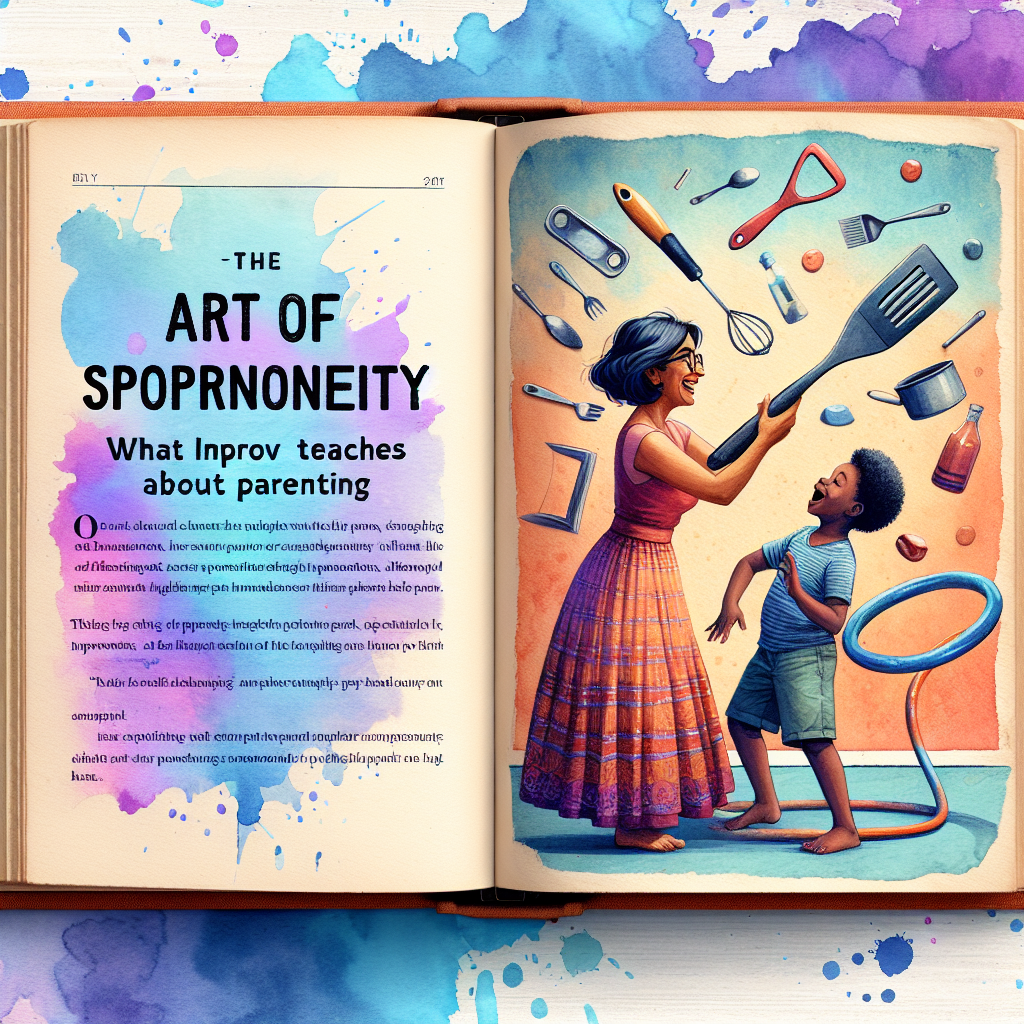The Art of Spontaneity: What Improv Teaches Us About Parenting
Parenting, often described as one of life’s most rewarding yet challenging journeys, is a dynamic and unpredictable adventure. Every child is unique, with their own set of needs and quirks, requiring parents to continuously adapt and respond to situations they have never encountered before. Interestingly, this dance of flexibility and adaptability echoes the ethos of improvisational theater, or improv. By embracing the principles of improv, parents can navigate the uncertainties of parenting with creativity, confidence, and joy.
Embracing the "Yes, And" Mindset
One of the foundational principles of improv is the "Yes, and…" mindset. This idea requires improv actors to accept what their fellow performers present and then build upon it. In the context of parenting, "Yes, and…" can transform interactions with children. Instead of dismissing a child’s imaginative idea, acknowledging and expanding on it can foster a sense of validation and encourage creativity. This approach not only builds a child’s confidence but also strengthens the parent-child bond through shared participation in imaginative endeavors.
Cultivating Active Listening
Effective communication is paramount in both improv and parenting. Improvisers are trained to listen actively, not just to hear words but to grasp the underlying emotions and intentions. Similarly, parents who practice active listening can better understand their children’s feelings and needs. This deeper understanding allows for more empathetic and effective responses, whether in moments of joy or during conflicts. By focusing on the child’s perspective, parents can address issues more thoughtfully and create a supportive environment.
Adaptability in the Face of Chaos
Improv thrives on the unexpected and embraces chaos as an opportunity for creativity. Parenting parallels this notion, as children bring spontaneity and unpredictability into everyday life. A sudden change in plans due to a tantrum or an unexpected illness requires parents to think on their feet and adapt accordingly. Viewing these disruptions as opportunities to practice flexibility, rather than as obstacles, can transform stress into an avenue for personal growth and enhanced family dynamics.
Encouraging Playfulness
Improvisation is inherently playful, encouraging participants to approach scenarios with a sense of fun and exploration. Parenting, too, benefits from a playful attitude. Engaging in imaginative play with children encourages cognitive development and emotional health. It also allows parents to connect with their children on a fundamental level, creating shared memories and reinforcing the notion that learning and growth can be joyful processes.
Building Resilience Through Acceptance
Both improv and parenting teach the importance of accepting failure and moving forward without self-recrimination. Improvisers who flub a line must recover quickly, using the mistake to propel the scene into an unforeseen and often delightful direction. Similarly, parents who can laugh off missteps and learn from them foster a resilient mindset both for themselves and their children. This resilience teaches children that mistakes are not endpoints but rather stepping stones in the journey of life.
Trusting the Process
Finally, improv is about trust—trust in oneself, in one’s fellow actors, and in the process itself. Parenting also requires a deep level of trust: trust in oneself as a capable caregiver, trust in the child’s ability to learn and grow, and trust in the journey of parenting, with its highs, lows, and unexpected turns.
Conclusion
The art of spontaneity that improv offers is an invaluable toolkit for parents. By embracing principles such as "Yes, and," active listening, adaptability, playfulness, resilience, and trust, parents can navigate the complexities of raising children with greater ease and enjoyment. In doing so, they not only enrich their parenting experience but also nurture a supportive and loving environment in which their children can thrive.
Ultimately, the intersection of improv and parenting reminds us that life, like theater, is best experienced with an open mind, a sense of humor, and the willingness to embrace the beautiful unpredictability of the moment.
